DOI:
10.1039/C1AY90051J
(Editorial)
Anal. Methods, 2012,
4, 21-24
Editorial Board profiles
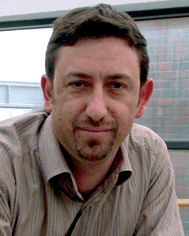 |
| | Plate1 Brett Paull | |
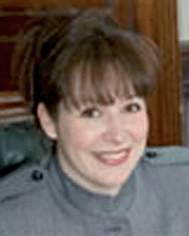 |
| | Plate2 Melissa Hanna-Brown | |
Melissa Hanna-Brown is an Associate Research Fellow within the Analytical R & D function of Pharmaceutical Sciences at Pfizer Global R & D Labs in Sandwich, Kent UK, visiting Professor at the University of Warwick, where she contributes to teaching of Separation Science, and a Fellow of the Royal Society of Chemistry. Melissa's research interests are in separation science technology development, chromatographic and electrophoretic method development strategies, high resolution and chemometric approaches for pharmaceuticals or complex biofluid profiling (especially metabolomics) and predictive modelling of separations. At Pfizer, Sandwich, Melissa leads separation science experts and generalised analytical science support for late stage drug development through to new drug regulatory applications. She represents Pfizer in the European Federation of Pharmaceutical Industries and Associations (EFPIA) cross-industry topic team on Quality by Design for Analytical Methods. Melissa's previous position was Senior Lecturer in Separation Science at King's College London. Her Ph.D. studies were carried out between King's College London and SmithKline Beecham on the application of separation (chromatographic and electrophoretic) technologies as models for rapid prediction of drug-biomembrane partitioning. Her postdoctoral research involved developing novel triple-column electrophoretic technology allowing sensitive detection of trace components in complex matrices via 2D-CE for which she won the Desty Memorial Prize for Contribution to Separation Science in 2000. Melissa has been an invited presenter at over 50 national and international conferences since the start of her Ph.D. studies. Melissa is associate editor for the journal Bioanalysis. Melissa has served as Vice President on the RSC Analytical Division Council and now holds joint chairs on this council and the Industry and Technology Forum. She is a long-serving member of the RSC Separation Sciences Executive Committee.
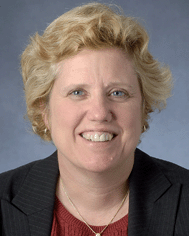 |
| | Plate3 Susan Lunte | |
Susan M. Lunte is the Ralph N. Adams Distinguished Professor of Chemistry and Pharmaceutical Chemistry at the University of Kansas, Lawrence, KS. She received a B.S. degree in chemistry from Kalamazoo College, Kalamazoo, MI, in 1980, and a Ph.D. in analytical chemistry in 1984 from Purdue University, West Lafayette, IN. She was a research scientist at Bioanalytical Systems, West Lafayette, IN (1984) and Procter & Gamble, Cincinnati, OH (1984–1987) before coming to the University of Kansas. Dr Lunte began her academic career at the Center for Bioanalytical Research (CBAR) in 1987 as a non-tenure track scientist. She was appointed its Associate Director in 1993 and was Director from 1994 to 1997. In 1995, Dr Lunte joined the Department of Pharmaceutical Chemistry as an Associate Professor and was promoted to Professor in 2000. In 2006, she was named the Ralph N. Adams Distinguished Professor of Chemistry and Pharmaceutical Chemistry. Dr Lunte has been the recipient of a NSF CAREER Award; the Agnes Fay Morgan Research Award, and the University of Kansas Graduate Student Mentoring Award. In 2002 she was recognized by the undergraduate students as a Center for Teaching Excellence Outstanding Teacher at KU and named an American Association of Colleges of Pharmacy Teacher of the Year. She is a fellow of the American Association of Pharmaceutical Scientists. In 2004, Dr Lunte was the recipient of the AAPS Research Achievement Award in Analysis and Pharmaceutical Quality, and in 2007 received the AAPS Analysis and Pharmaceutical Quality (APQ) Outstanding Manuscript Award. She has been an associate editor of Pharm. Sci. and has served on a number of editorial boards including Pharmaceutical Research, Analytical Chemistry, Electrophoresis and Analyst. Her research interests include new methodologies for separation and detection of peptides, amino acids, neurotransmitters and pharmaceuticals in biological fluids.
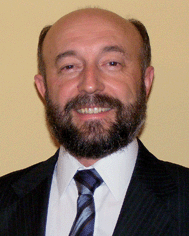 |
| | Plate4 Antonio Molina Díaz | |
Antonio Molina Díaz received his B.Sc. in 1975 and Ph.D. degree in chemistry from the University of Granada (Spain) in 1982. He was appointed as Associate Professor (1985) and then Professor (2003) at the University of Jaén (Spain). His current research interests include the study of new sample treatment/extraction methodologies for the determination of pesticides and other contaminants in foodstuffs by chromatographic techniques hyphenated with mass spectrometry, the development of automated methods based on flow analysis using multicommutation and solid-phase spectroscopic detection (flow-through optosensors), the characterization and evaluation of the performance of advanced wastewater treatment technologies for sustainable water reuse, and the application of methodologies based on LC-TOFMS for forensics/toxicology/doping control applications. He is (co)-author of over 175 publications in peer reviewed international journals, 15 book chapters and holds a patent. He has supervised 15 Ph.D. theses and is the head of the Analytical Chemistry Research Group at the University of Jaén.
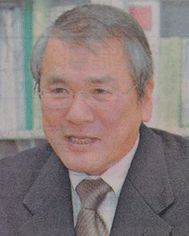 |
| | Plate5 Shoji Motomizu | |
Shoji Motomizu received his B.Sc. degree in 1966 and M.Sc. degree in 1968 in analytical chemistry from Okayama University in Japan. His D.Sc. in analytical chemistry was awarded in 1973 from Kyoto University in Japan. In 1968, he started his studies in analytical chemistry at Okayama University as a research associate, and in 1992 he was promoted to Professor of Analytical Chemistry of Okayama University. He is currently a Professor of Specialty in Research of Okayama University and of Aichi Institute of Technology. He was chairman of JAFIA (the Japanese Association for Flow Injection Analysis) in 1994–2005, and Editor-in-Chief of JSAC (Japan Society for Analytical Chemistry) journals, Bunseki Kagaku in 2003–2006. He is now a Titular Member of the Analytical Chemistry Division, IUPAC. He has received several awards for his contribution to analytical chemistry including, JSAC Award for Young Scientist in 1973, The 37th Award for Excellent Paper in Fat/Oil Techniques in 1994, Warsaw University Award in 2000, and JSAC Award for “Development of Separation/Detection System Based on Ion Association Concept” in 2001. He was awarded the JAFIA Best Paper Award in 2002 and 2005, the JAFIA Scientific Award in 2005, and the Sanyo Newspaper Award in 2009. His research focuses on the development of new organic reagents for the separation and detection of trace analytes, especially ion association and chelating reagents and ion exchange resins; flow-based analysis (FIA/SIA, HPLC, IC and CE), especially computer-controlled flow-based analysis systems; and new instrumentation for ultratrace analysis. He is the author and co-author of more than 360 original papers published in international journals, and of more than 45 books/chapters in analytical chemistry.
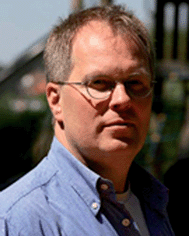 |
| | Plate6 Ulrich Panne | |
Ulrich Panne studied chemistry at the University of Dortmund and at University College London (UCL). He gained his Ph.D. in Analytical Chemistry at the Technical University Munich (TUM) and carried out post-doctoral studies at the Environment Institute of Joint Research Centre Ispra (1993/94). He carried out his Habilitation in Analytical Chemistry at TU Munich in 2001. He became head of department for Analytical Chemistry Reference Materials at BAM in 2004 and gained a C4(S) professorship for Instrumental Analytical Chemistry at Humboldt University Berlin. His research interests include analytical chemistry with a strong focus on spectrochemical analysis; in particular laser-induced breakdown spectroscopy (LIBS) and fluorescence spectroscopy, Raman spectroscopy, and photothermal methods as well as process analysis and chemometry.
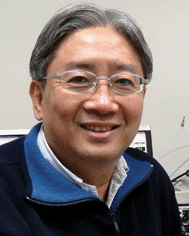 |
| | Plate7 Jentaie Shiea | |
Jentaie Shiea received his bachelor degree in chemistry from National Chung-Hsing University, Taiwan in 1981. He received M.S. (1988) and Ph.D. (1991) degrees from Montana State University. His thesis studies focused on organic geochemistry and analytical/physical chemistry. After a post-doctoral fellowship at Pennsylvania State University (Department of Material Science), he joined the National Sun Yat-Sen University (NSYSU, Kaohsiung, Taiwan) Faculty. He is now a Professor of Department of Chemistry (Analytical Division) at NSYSU and the Deputy Dean of College of Science. He has authored or co-authored more than 200 scientific publications and presentations at internationally scientific meetings. In the last decade, he has devoted himself to promoting mass spectrometric research in Taiwan and Asia. Currently, he is the president of the Taiwan Society for Mass Spectrometry (TSMS) and the executive board member and the representative of Region B (Asia and Oceania) of the International Mass Spectrometry Foundation (IMSF). His research interests have long involved biological and organic mass spectrometry, instrumentation, separation, proteomics, and polymer science. Current research work in his laboratory focuses on four main aspects: (1) developing ionization techniques for ambient mass spectrometry; (2) interfacing mass spectrometry with nano-HPLC, GC, CE, and TLC; (3) searching disease biomarkers in the biological fluids; and (4) using mass spectrometry as a tool to rapidly diagnose diseases. Professor Shiea received The Graduate Achievement Award for Outstanding Performance for his Master's Thesis of Montana State University in 1988. He has received several awards from the National Science Council, Taiwan and NSYSU for his excellent research in mass spectrometry. He has been honored by NSYSU with its Awards for Teaching Excellence of College of Science (2001) and Excellent Invention (2007). He is a board member of several government and university committees in controlled drugs, public health and engineering and patents.
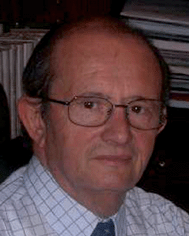 |
| | Plate8 Miguel Valcárcel | |
Miguel Valcárcel received his B.Sc. (1969) and Ph.D. (1971) degrees at the University of Sevilla with extraordinary end-of-studies and doctorate awards. He was temporary Assistant Professor (1972–75) at the University of Sevilla, Associate Professor (1975–76) at the University Autónoma of Barcelona and has been full Professor of Analytical Chemistry at the University of Córdoba since 1976. He is author and co-author of more than 800 indexed scientific articles (with a Hirsh factor of 43), nine monographs, eight textbooks and 20 book chapters. He was the coordinator of research for 25 Spanish scientific projects and 14 of an international nature, as well as 12 contracts with private firms. He is the co-supervisor of 70 doctoral theses and has been an invited lecturer at 70 international meetings. His main research interests are: (1) Automation, miniaturization, simplification and quality of (bio)chemical measurement processes; and (2) Analytical Nanoscience and Nanotechnology. Miguel loves teaching Analytical Chemistry. He is involved in the Agency of Quality Assurance of Spanish universities. One of the most significant contributions in this context is the study of the state of the art and prospects of doctoral studies in Spain and Europe. Miguel enjoys sports. He plays tennis and is an unrepentant supporter of Barcelona's soccer team.
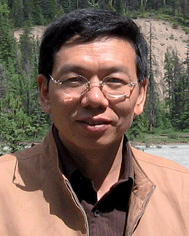 |
| | Plate9 Xiu-Ping Yang | |
Xiu-Ping Yan is Cheung Kong Distinguished Professor at Nankai University, China. He received his M.S. in Analytical Chemistry at the Dalian Institute of Chemical Physics, Academy of Sciences of China (1987), and Ph.D. in Environmental Chemistry at the Research Center for Eco-Environmental Sciences, Academy of Sciences of China (1993). He held post-doctoral positions in the Department of Chemistry at Peking University, China (1993–1994), Department of Applied Research at Bodenseewerk Perkin-Elmer GmbH, Germany (1995), Micro- and Trace Analysis Center at the University of Antwerp (UIA), Belgium (1996), and Department of Geological Sciences at the University of Saskatchewan, Canada (1997–1999). He was awarded the NSFC National Distinguished Young Scholars Foundation (2000), and CCS Shu-Quan Liang Prize for Fundamental Research in Analytical Chemistry (2006). He has approximately 160 publications in international journals and holds 13 patents. He is an editorial (advisory) board member of Talanta, Analytica Chimica Acta, Electrophoresis, Cancer Nanotechnology. His research interests include analytical atomic (mass) spectrometry and its combination with flow injection, chromatography and capillary electrophoresis, green methodologies for sample pre-treatment, and advanced functional materials for environmental analysis and bioanalysis.
|
| This journal is © The Royal Society of Chemistry 2012 |
Click here to see how this site uses Cookies. View our privacy policy here. 








